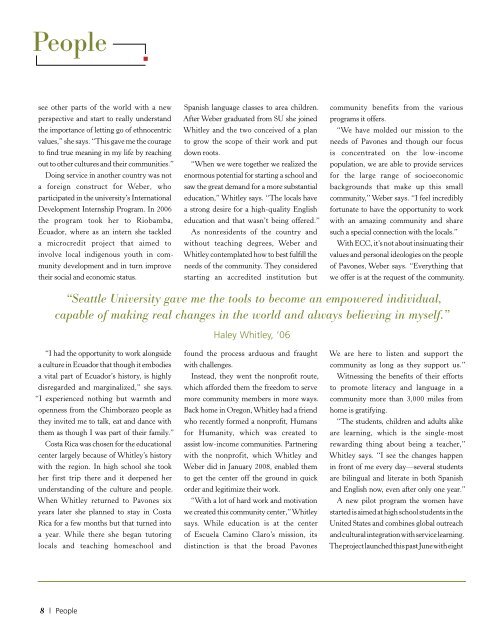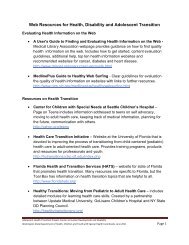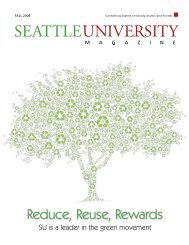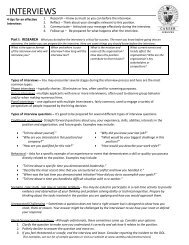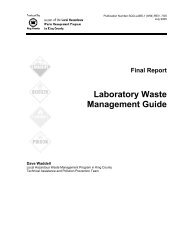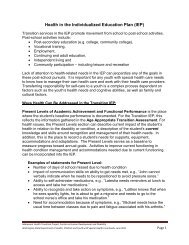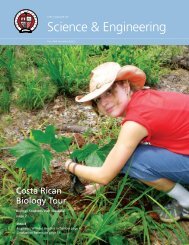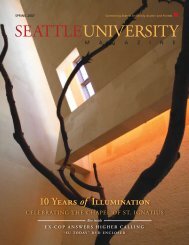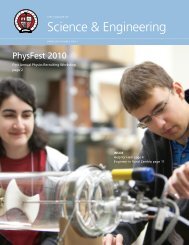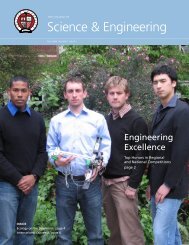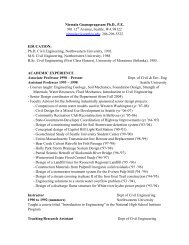Spring 2009 - Seattle University
Spring 2009 - Seattle University
Spring 2009 - Seattle University
You also want an ePaper? Increase the reach of your titles
YUMPU automatically turns print PDFs into web optimized ePapers that Google loves.
People<br />
see other parts of the world with a new<br />
perspective and start to really understand<br />
the importance of letting go of ethnocentric<br />
values,” she says. “This gave me the courage<br />
to find true meaning in my life by reaching<br />
out to other cultures and their communities.”<br />
Doing service in another country was not<br />
a foreign construct for Weber, who<br />
participated in the university’s International<br />
Development Internship Program. In 2006<br />
the program took her to Riobamba,<br />
Ecuador, where as an intern she tackled<br />
a microcredit project that aimed to<br />
involve local indigenous youth in community<br />
development and in turn improve<br />
their social and economic status.<br />
Spanish language classes to area children.<br />
After Weber graduated from SU she joined<br />
Whitley and the two conceived of a plan<br />
to grow the scope of their work and put<br />
down roots.<br />
“When we were together we realized the<br />
enormous potential for starting a school and<br />
saw the great demand for a more substantial<br />
education,” Whitley says. “The locals have<br />
a strong desire for a high-quality English<br />
education and that wasn’t being offered.”<br />
As nonresidents of the country and<br />
without teaching degrees, Weber and<br />
Whitley contemplated how to best fulfill the<br />
needs of the community. They considered<br />
starting an accredited institution but<br />
community benefits from the various<br />
programs it offers.<br />
“We have molded our mission to the<br />
needs of Pavones and though our focus<br />
is concentrated on the low-income<br />
population, we are able to provide services<br />
for the large range of socioeconomic<br />
backgrounds that make up this small<br />
community,” Weber says. “I feel incredibly<br />
fortunate to have the opportunity to work<br />
with an amazing community and share<br />
such a special connection with the locals.”<br />
With ECC, it’s not about insinuating their<br />
values and personal ideologies on the people<br />
of Pavones, Weber says. “Everything that<br />
we offer is at the request of the community.<br />
“<strong>Seattle</strong> <strong>University</strong> gave me the tools to become an empowered individual,<br />
capable of making real changes in the world and always believing in myself.”<br />
Haley Whitley, ’06<br />
“I had the opportunity to work alongside<br />
a culture in Ecuador that though it embodies<br />
a vital part of Ecuador’s history, is highly<br />
disregarded and marginalized,” she says.<br />
“I experienced nothing but warmth and<br />
openness from the Chimborazo people as<br />
they invited me to talk, eat and dance with<br />
them as though I was part of their family.”<br />
Costa Rica was chosen for the educational<br />
center largely because of Whitley’s history<br />
with the region. In high school she took<br />
her first trip there and it deepened her<br />
understanding of the culture and people.<br />
When Whitley returned to Pavones six<br />
years later she planned to stay in Costa<br />
Rica for a few months but that turned into<br />
a year. While there she began tutoring<br />
locals and teaching homeschool and<br />
found the process arduous and fraught<br />
with challenges.<br />
Instead, they went the nonprofit route,<br />
which afforded them the freedom to serve<br />
more community members in more ways.<br />
Back home in Oregon, Whitley had a friend<br />
who recently formed a nonprofit, Humans<br />
for Humanity, which was created to<br />
assist low-income communities. Partnering<br />
with the nonprofit, which Whitley and<br />
Weber did in January 2008, enabled them<br />
to get the center off the ground in quick<br />
order and legitimize their work.<br />
“With a lot of hard work and motivation<br />
we created this community center,” Whitley<br />
says. While education is at the center<br />
of Escuela Camino Claro’s mission, its<br />
distinction is that the broad Pavones<br />
We are here to listen and support the<br />
community as long as they support us.”<br />
Witnessing the benefits of their efforts<br />
to promote literacy and language in a<br />
community more than 3,000 miles from<br />
home is gratifying.<br />
“The students, children and adults alike<br />
are learning, which is the single-most<br />
rewarding thing about being a teacher,”<br />
Whitley says. “I see the changes happen<br />
in front of me every day—several students<br />
are bilingual and literate in both Spanish<br />
and English now, even after only one year.”<br />
A new pilot program the women have<br />
started is aimed at high school students in the<br />
United States and combines global outreach<br />
and cultural integration with service learning.<br />
The project launched this past June with eight<br />
8 | People


